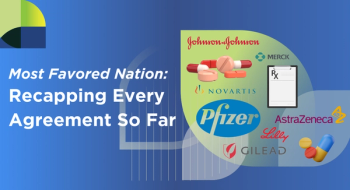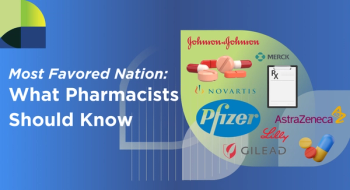
- January/February 2017
- Volume 8
- Issue 1
HHS Guidance Requires Specialty Pharmacies to Scrutinize Patient Cost-Sharing and Incentive Programs
Specialty pharmacies will need to carefully consider the effect of the final rule regarding Anti-Kickback Statute safe harbors and Civil Monetary Penalty Law exceptions on their existing patient benefit programs.
On December 7, 2016, the Department of Health and Human Services (HHS) issued the long-awaited final rule regarding Anti-Kickback Statute (AKS) safe harbors and Civil Monetary Penalty Law (CMP) exceptions.
The rule addresses topics central to many specialty pharmacy (SP) operations, including waivers of patient cost-sharing obligations, the provision of items that increase access to care, and retail rewards programs. The AKS is a criminal statute that prohibits the exchange of value to induce federal health care program referrals.
If even 1 purpose of an arrangement is to induce referrals, then the AKS is violated. However, some arrangements are protected by safe harbors and deemed to not violate the AKS. The final rule addresses some of these safe harbors, including pharmacy waivers of patient cost-sharing obligations.
The CMP imposes monetary penalties against any person that offers or gives remuneration to a federal health care program beneficiary to influence the receipt of reimbursable items or services. The CMP expressly adopts the AKS safe harbors, so if an arrangement meets an AKS safe harbor, then it will not be a violation of the AKS or the CMP. The reverse is not true, however: CMP exceptions do not create safe harbors under the AKS. The final rule addresses the access to care and retail reward exceptions, among others.
Waiver of Patient Cost Sharing
The AKS safe harbor for waiver of patient cost sharing is familiar to most SPs. Under the safe harbor, co-pay waivers cannot be advertised or solicited, cannot be routine, and can only be done after making a good faith determination of financial need or an attempt to collect from the patient. The rule clarifies that the safe harbor applies to all federal programs, not just Medicare Part D and Medicaid, but is available only to pharmacies.
Accordingly, physicians that buy and bill under Part B cannot rely on the safe harbor. The rule emphasizes the prohibition on “advertisement” and “solicitation,” which are interpreted consistent with “their common usage.”
Posting waiver information on a website would be advertising, but responding to a patient’s inquiry or discussing financial need with a particular patient would generally not be advertising. Further, advertising “insurance accepted as payment in full” would not meet the safe harbor, the rule states.
HHS warns that when determining whether waivers are routine, it will look at waivers to all patients—including those for private-pay patients and Part D subsidy—eligible individuals (both of whom SPs are permitted to waive). The rule cautions that automatic waivers will likely be considered routine, although a waiver can be routine even if it is not automatic, acknowledging that pharmacies may employ different methods of determining financial need so long as they are appropriate for the applicable locality.
Appropriate methods may include applying a multiple of the federal poverty guideline, taking into account family size and location, or considering a family’s medical expenses. Although documented proof of financial need is not required, there must be more than a patient’s statement that she or he is in need.
Also, while not required, a written policy describing the pharmacy’s process and evidence that the written policy was followed will demonstrate compliance. Reasonable efforts to collect patient obligations include billing the patient (repeatedly if necessary), collection letters, and/or telephone calls.
Preemptive decisions not to request payment or pursue collection efforts would not be considered a reasonable collection effort, however, a patient’s historic inability to pay may be a factor in making reasonable efforts. If a pharmacy is statutorily prohibited from collecting a co-pay from a patient, such as a Medicaid beneficiary, there is no co-pay to be “waived”; thus, no safe harbor protection is needed.
Access-to-Care Exception
The access-to-care CMP exception allows the provision of items that promote access to care and pose a low risk of harm to patients. An item promotes access if it improves a patient’s ability to obtain items and services payable by Medicare, such as smoking-cessation programs, nutritional counseling, or disease-specific support groups.
The rule warns that drug compliance rewards do not meet the exception (although, they may be otherwise permitted). Also, rewards, such as providing movie tickets when a patient attends an appointment, do not promote access to care. An item poses a low risk of harm if it, among other things, is unlikely to increase costs through overutilization or improper utilization.
The rule clears up that pharmacy offerings are not automatically deemed a “low risk of harm” even though pharmacies only dispense drugs pursuant to a prescription, which ensures medical necessity, warning that pharmacies “are no less likely to … encourage overutilization and inappropriate utilization” by encouraging a beneficiary to switch to more expensive drugs.
However, the rule reiterates the need to avoid the overall increase in health care costs. For example, a cost to the government might increase because of prescribed drugs, but overall health care costs may decrease because the patient will be managing a condition with a drug rather than risking hospitalization.
Retail Reward Discounts
The rule clarifies the existing retail rewards statutory exception and incorporates it into regulation. The exception protects “coupons, rebates, or other rewards” from a retailer that are made available on equal terms to the general public, regardless of health insurance status.
The rule clarifies that pharmacies, whether big box or stand-alone, can be “retailers” because they sell items (drugs). However, the rule cautions that pharmacies may have trouble qualifying if they only sell items reimbursable by federal programs. The exception prohibits rewards that can only be earned or received by purchasing an item or service reimbursable by federal health care programs.
For example, rewards cannot be given for transferring prescriptions because that ties earning the reward to purchasing an item reimbursed by federal programs. Similarly, the exception is not met if a pharmacy had a rewards program that offered 2 points for every dollar spent on prescription co-pays, but 1 point for every dollar spent elsewhere in the store.
Likewise, a co-pay waiver reward would be unacceptable, but a coupon that could be used on anything in the store, including co-pays, would be acceptable. Bonus Guidance Also through the rule, HHS updated the CMP nominal-in-value exception. Items that are nominal in value are not considered remuneration under the CMP; therefore, they do not need to meet an exception.
The thresholds were raised from $10 per item and $50 in the aggregate per patient on an annual basis to $15 and $75, respectively. The rule also spells out how to calculate the value of a lottery or raffle entry under the CMP. The amount of the “winnings” should be divided by the number of entries, and each participant is deemed to receive the value of their entries. If the value to the participant is under the nominal-in-value threshold, there is no CMP violation.
Next Steps for Specialty Pharmacies
The rule provides detailed guidance on safe harbors and exceptions permitting certain patient benefit programs utilized by many SPs. However, each element of the safe harbor or exception must be met to gain protection. SPs should consult with legal counsel on the effect of the rule on their existing patient benefit programs to ensure compliance and explore opportunities for additional offerings. 
MICHAEL R. HESS is a member of Bass, Berry & Sims PLC and leads its Specialty Pharmacy, Pharma Services, and Distribution Practice, and is based in the firm’s Memphis, Tennessee, office. He is the former chief counsel and vice president of Strategic Development at Accredo Health Group and assistant general counsel for Accredo’s parent, Medco Health Solutions. Bass, Berry & Sims PLC has more than 220 attorneys representing numerous publicly traded companies and Fortune 500 businesses. The firm has 3 offices in Tennessee (Nashville, Memphis, Knoxville) and 1 in Washington, DC. SHANNON L. WILEY is an associate of Bass, Berry & Sims PLC in its Specialty Pharmacy, Pharma Services, and Distribution Practice and is based in the firm’s Memphis office. COURTNEY H. GINN is an associate of Bass, Berry & Sims PLC in its Healthcare Practice and is based in the firm’s Nashville office.
Articles in this issue
almost 9 years ago
Medical Benefit Specialty Drug Management–A Call to Actionalmost 9 years ago
Behavioral Analytics: Key to Shutting Down the Medicare Part D ATMalmost 9 years ago
Late-Stage Pipeline Review for Multiple Sclerosis Treatmentsalmost 9 years ago
Should Specialty Look at Mobile Health?almost 9 years ago
Specialty Pharmacy’s Role in the Changing Face of Health CareNewsletter
Stay informed on drug updates, treatment guidelines, and pharmacy practice trends—subscribe to Pharmacy Times for weekly clinical insights.


























